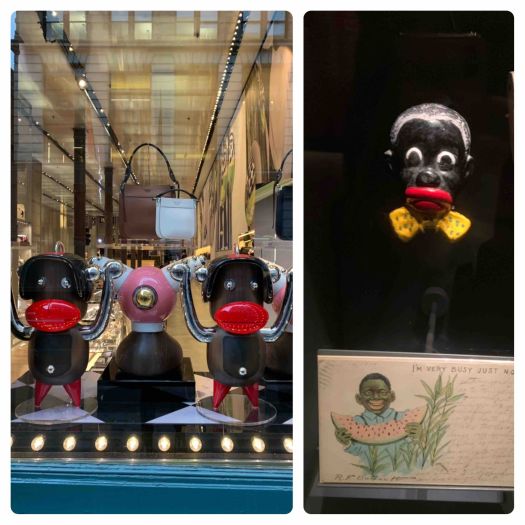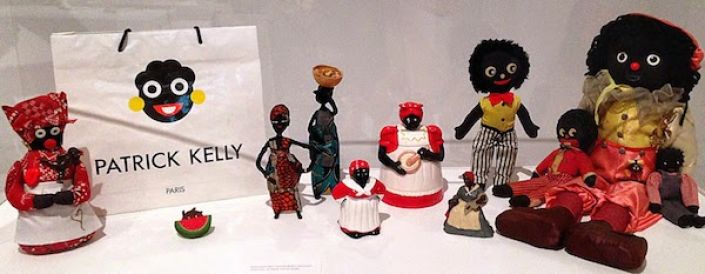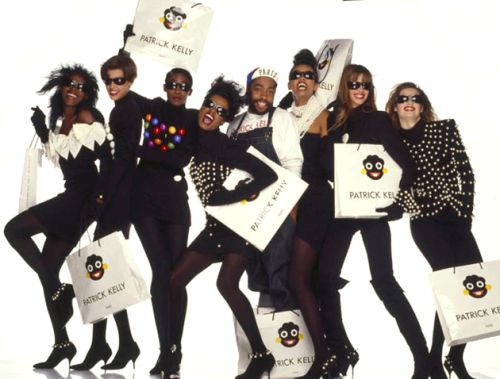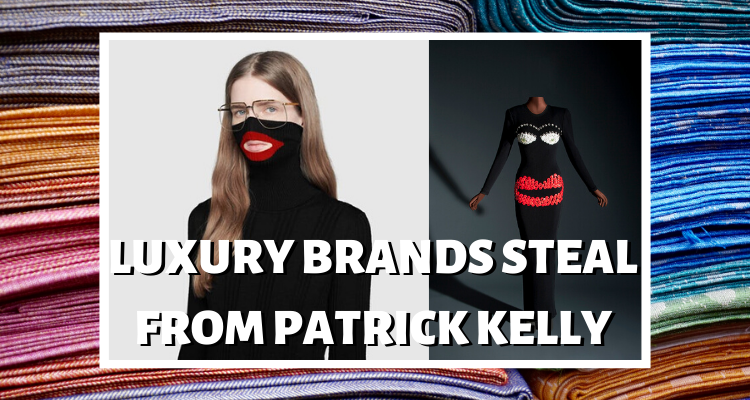High-end brands like Gucci, Moncler and Prada have been under fire for selling products that many say “resemble blackface.” There are also many claims that these luxury brands stole their ideas from Patrick Kelly, a well-celebrated African-American fashion designer who rose to fame in Paris.
Moncler was first accused of selling racist products back in July 2016. Prada was accused as well in December 2018 and this month Gucci has senselessly released an offensive balaclava sweater, or what is now being called a “blackface sweater.” It was released during Black History Month.
Gucci released an $890 black turtleneck that surrounds the mouth with big, red lips. This sparked a worldwide conversation across many social media platforms about what is offensive and what is not considered offensive.

Although all three companies have removed the controversial items from their stores and issued apologizes, these luxury brands are still under scrutiny because there are claims that they copied their ideas from African-American fashion designer Patrick Kelly.
“These brands, on top of having no clear concept of what is and is not offensive content, are trying to copy the Patrick Kelly brand,” Treonna Turner, who has a bachelors in apparel, textiles and merchandising from Eastern Michigan University and design certifications from Central Saint Martins, posted on Twitter.

Following that tweet, Turner decided to create a thread of tweets educating people on the late Patrick Kelly, who died in 1990. “I created the thread because I was fed up with people asking, ‘Where is this coming from?’ and not knowing the history of Patrick Kelly, his designs and the impact that he had on the industry,” Turner said. “It honestly started as a rant that ended up going viral.”
She pointed out how similar Gucci, Moncler and Prada’s designs were to Kelly’s work in the ‘80s. The only difference, Kelly’s work is full of culture and purpose. The controversial products from these luxury brands are not. Take a look at Prada’s collection in their storefront in NYC below.

Now, take a look at one of Patrick Kelly’s collections.

The similarities in concept are astounding.
“Due to his creativity, style and fashion, they’d rather copy his ideas,” senior psychology major Brierra Woods said. “That’s easier for them rather than giving him credit.”
Kelly’s work certainly had people’s attention.
“I think these luxury brands saw the power behind his work and how it grabbed people’s attention. They wanted to be known as a brand that can take risks,” senior marketing major and fashion enthusiast Ashley Miller said. “Brands and designers get inspiration from each other all the time but I think it’s important to honor where they get inspiration from.”
Patrick Kelly took racist imagery and reclaimed it in a culturally-celebrated way. Can these luxury companies say the same? The Brooklyn Museum said that Kelly took images from popular culture in hopes to bring issues of racial stereotyping into focus.
“Kelly was deliberately using his work to confront questions of race, something that the fashion industry has never done in the past,” Ashley Miller said. “Kelly was intentional when he added these designs to his collection. He understood the meaning behind them and he understood the symbols of black oppression.”
The Life of Patrick Kelly
According to Vice, Patrick Kelly was born in 1954 in a small-town in Mississippi and moved to Atlanta when he was 18. Growing up in the deep South during Jim Crow meant he inevitably faced racism starting at a very young age.

His first fashion job was as a window dresser at Yves Saint Laurent in Atlanta and it was unpaid. During that time, he sent an application to Parsons School of Art and Design in New York City and received a scholarship. However, the scholarship was likely revoked when the school found out that he was not white. He attended for one semester but later dropped out because of financial troubles.
After dropping out of school, Kelly had a hard time in New York City because he was not accepted for who he was. He was a flamboyant African-American man and an aspiring fashion designer. People at that time did not want to embrace him.
Kelly’s life turned around in 1979 when, according to Vice, a friend anonymously mailed him a one-way ticket to Paris. It was sent to a barbershop that he always hung out at. He took the ticket and never looked back. This was the start to new, very fortunate beginnings for Kelly.
He met his soulmate and partner for the rest of his life, Bjorn Amelan, in 1983. Kelly became the first American to have designs admitted to the Chambre Syndicale de la Couture Parisienne, which resulted in his collections being put on display at the Louvre. The North Carolina Museum of Art described that by 1989, he had dozens of design roles for multiple different companies and was always signing new deals. He died on Jan. 1 of the next year from an AIDS-related illness.
Patrick Kelly was a well-respected and celebrated fashion designer who did not discriminate against people of different backgrounds or sizes. In an interview with People Magazine in 1987, he expressed his love of designing for women and embracing what is natural. “I design for fat women, skinny women, all kinds of women,” Kelly said. “My message is, ‘You’re beautiful just the way you are.’ “



